I’ve seen the power veneers have to transform smiles and I love seeing the boost in confidence it gives my patients. But to continue enjoying that bright, radiant smile, I always give my patients clear instructions on how to care for veneers.
In this guide, I’ll cover everything you need to know about caring for your veneers to maximise their lifespan, protect your investment, and keep your smile looking healthy for as long as possible.
I’ll cover immediate veneer aftercare, long-term veneer aftercare, lifestyle choices to maintain veneers, and veneer complications to watch out for.

A Quick Summary of Veneer Aftercare:
- After getting dental veneers, the first week requires special caution and gentleness to ensure the mouth heals properly.
- Failing to follow proper aftercare steps after getting veneers increases the chance of gum disease or irreparable veneer damage.
- Brushing gently with a soft-bristled toothbrush and flossing daily is one of the most important ways to maintain your veneers.
- To care for veneers, it is important to use a non-abrasive toothpaste, see your dentist for regular checkups, avoid tobacco products, rinse your mouth with water after eating, wear a bite splint if necessary, limit consumption of staining foods and drinks, and wear a mouthguard for contact sports.
- Recognising potential issues with veneers early and notifying your dentist right away is key to preventing further complications.
Why Veneer Aftercare Is Important
Veneers are thin shells custom-designed to fit over your teeth’s front surface. As one of the most popular cosmetic dental procedures, veneers can address a variety of concerns, including discolouration, gaps in teeth, misshapen teeth, and more.
Veneers are typically made from composite or porcelain materials and can give you a long-lasting smile transformation.
Proper aftercare for your veneers is crucial to keep your smile radiant but also to maintain their function.
Without adequate veneer aftercare, you are increasing your risk of:
- Damaged Veneers — Both composite and porcelain veneers are durable but can crack or chip if you aren’t careful. If veneers become damaged, they’ll need to be replaced.
- Discolouration — Foods and drinks that are prone to staining teeth (red wine, coffee, tea) will cause a mismatch between your natural teeth and the colour of your veneers.
- Oral Health Issues — Without a proper oral hygiene routine, plaque can build up around the edges of veneers and gum disease can occur. Because veneers attach to the surface of your natural teeth, it is crucial to keep your gums and teeth healthy.
- Costly Replacement — Without proper veneer aftercare, you may need to pay to replace damaged veneers.
Caring for Veneers: Immediate Aftercare
After your veneer procedure, it is normal to experience some mild discomfort and tenderness. This will naturally subside as your mouth and teeth adjust to the veneers.
I always give my patients a detailed aftercare guide and oral hygiene routine catered to veneers. I also encourage my patients to ask questions to ensure they feel confident in caring for their new veneers and preserving their investment.
The first week of having veneers is especially important as your teeth and mouth adjust to the veneers and you learn how to care for your new smile.
It is important to follow immediate veneer aftercare instructions closely and adhere to your dentist’s recommendations. Much of the immediate aftercare will be identical to long-term veneer care.
Here are ways to care for veneers in the first week after the procedure:
- Brush Gently — I advise the use of a soft-bristled toothbrush and gentle circular motions to brush your teeth. You can also use an electric toothbrush if you prefer.
- Use the Right Toothpaste — I recommend avoiding any toothpastes with abrasive ingredients. Harsh, abrasive ingredients can scratch veneers and dull their shine. A gentle toothpaste containing fluoride can be just as effective while protecting your new veneers.
- Floss With Care — Flossing is one of the biggest habits I recommend for a healthy, bright smile. But in the first week or two after getting veneers, be extremely gentle when you floss. Do not pull hard on the floss as it could cause the veneers to come out of place.
- Rinse Your Mouth With Water — After you eat, rinse out your mouth with water. This is a simple way to help rinse away food particles that may be stuck by your veneers.
- Avoid Hard Foods — It is important to avoid eating any hard foods during the first week you have veneers. Your teeth will likely still be sensitive and your veneers could be damaged by hard foods. Even after the first week, I tell my patients to limit or avoid hard foods.
- Protect Your Teeth At Night — Ask your dentist about a protective bite splint if you grind your teeth at night. The excessive force of teeth grinding can damage veneers.
- Watch Out for Foods and Drinks That Stain — To maintain your bright new smile, limit your consumption of staining drinks and foods, such as berries, tea, red wine, and coffee. You can still enjoy them in moderation, but rinse your mouth with water after. Frequent consumption of pigmented foods can stain your natural teeth, leaving them mismatched from the colour of your veneers.
- Wear a Mouthguard — If you play contact sports, a mouthguard is essential to protect your veneers against impact.
- Ask About Mouthwash — Ask your dentist if you should be using an antiseptic mouthwash
- Don’t Chew on Hard or Non-Food Objects — Chewing on pens, ice cubes, or fingernails can crack or chip veneers.
- Don’t Smoke — Do not smoke or use tobacco products. Along with staining your veneers, smoking increases the risk of oral health issues, such as gum disease.
- Do Not Use Your Teeth As Tools — How often have you seen someone rip open a package with their teeth? I know it can be tempting, but it is important to avoid using your teeth as tools to open packages or bite off tags. Doing so can put excessive pressure on your veneers and cause chips or cracks.
Long-Term Veneer After Care
After the first week of getting veneers, you’ll want to continue following a good oral hygiene routine and protecting your veneers from damage.
Here is what I recommend for long-term veneer aftercare:
- Floss every day
- Brush twice a day using a soft-bristled toothbrush and gentle circular motions
- Skip hard-bristled toothbrushes and abrasive toothpaste as they can scratch the veneer’s surface and cause dullness
- Do not use your teeth as tools to open packages or bottles
- Do not chew on non-food objects (i.e. ice cubes, pens, fingernails)
- Limit your consumption of highly pigmented foods and drinks such as red wine, tomato sauce, coffee, and black tea that can stain your natural teeth and cause them to become mismatched from your veneers
- Do not smoke or use tobacco products
- Ask your dentist about a custom mouthguard for contact sports to protect your veneers and natural teeth against damage
- Ask your dentist if you need a protective bite splint to prevent teeth grinding while you sleep
- Attend regular dental checkups so your dentist can evaluate your veneers and overall oral health and catch any issues early
Veneer FAQs
What are the signs I need to talk to my dentist about my veneers?
Watch out for these potential veneer issues and contact your dentist for advice if you notice:
- Cracks, Chips, or Damage — If you crack or chip a veneer, you’ll need to schedule an appointment immediately to prevent complications or further damage.
- Discolouration — If your natural teeth are stained and no longer match your veneers, professional teeth whitening can revive your smile and make it radiant again.
- Pain — If your veneers are painful, do not attempt to adjust them yourself. Contact your dentist right away. Ongoing pain may be a sign of an improperly fitted veneer or an abnormal bite.
- Shifting or Looseness — If a veneer shifts or feels loose, there could be an issue with the bonding cement.
What should I do if I break a veneer?
If you chip or break a veneer, contact your dentist right away. If you can, save the fragment and bring it to your appointment.
How do I brush my veneers?
A good oral hygiene is crucial to maintaining the appearance and function of your veneers and natural teeth. I always stress the importance of being gentle and mindful when brushing veneers.
Brush carefully around the edges of the veneers and make sure no food is stuck anywhere between the teeth. Following a good oral hygiene routine will help keep the teeth under your veneers healthy.
To brush veneers, use a soft-bristled toothbrush, gentle circular motions, do not press too hard, and attend regular professional cleanings according to your dentist’s recommendations.
Can I eat hard food with veneers?
Whether you just got veneers a few days ago or have had them for years, I do not recommend eating hard food. Crunchy or hard foods, such as nuts, are a common cause of broken, cracked veneers.
What are the risks of not caring for my veneers?
Risks of not following a good oral hygiene routine and proper veneer aftercare include:
- Discolouration and staining
- Decay and gum disease
- Damage to the underlying tooth structure
- Damaged veneers that require replacement
How do I clean my temporary veneers?
Temporary veneers protect teeth as you wait for your actual veneers to be completed. Temporary veneers lack durability, making it important to be particularly gentle and cautious when you care for them.
Here are tips for cleaning and caring for temporary veneers:
- Brush and floss every day but be extremely gentle and careful to avoid dislodging the temporary veneers
- Stick to non-abrasive toothpaste and a soft-bristled toothbrush
- Avoid sticky, chewy, or hard foods that can damage or dislodge temporary veneers
- Do not use teeth whitening strips, toothpastes, or other whitening products on temporary veneers
- Opt for soft foods (I often recommend mashed potatoes, yoghurt, applesauce, and soups as excellent options)
- Rinse your mouth with water after you eat to help clear away any food debris
- Avoid smoking or tobacco use
- Do not grind your teeth, bite your nails, or chew on objects
Want to Learn More About Veneer Aftercare?
To maintain your veneers and maximise their lifespan, be sure to brush and floss every day, avoid foods and drinks that stain, avoid hard foods, wear a splint or mouthguard if needed, avoid tobacco use, and visit your dentist for regular checkups.
We are committed to helping you keep your veneers beautiful and functional for years to come. If you have questions about veneer aftercare or are curious if you are a good candidate for veneers, contact our friendly team at 123 Dental.


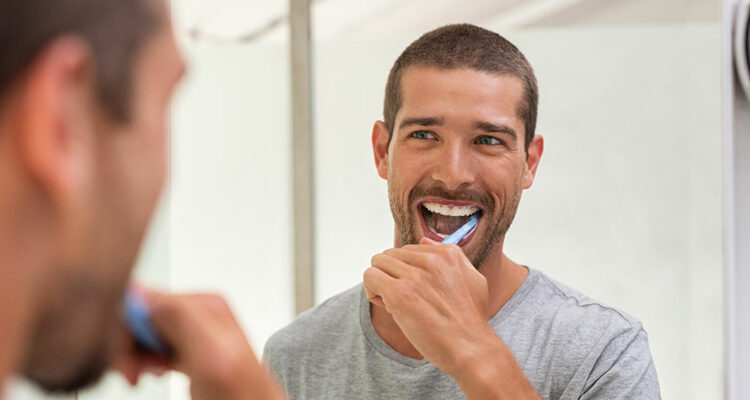
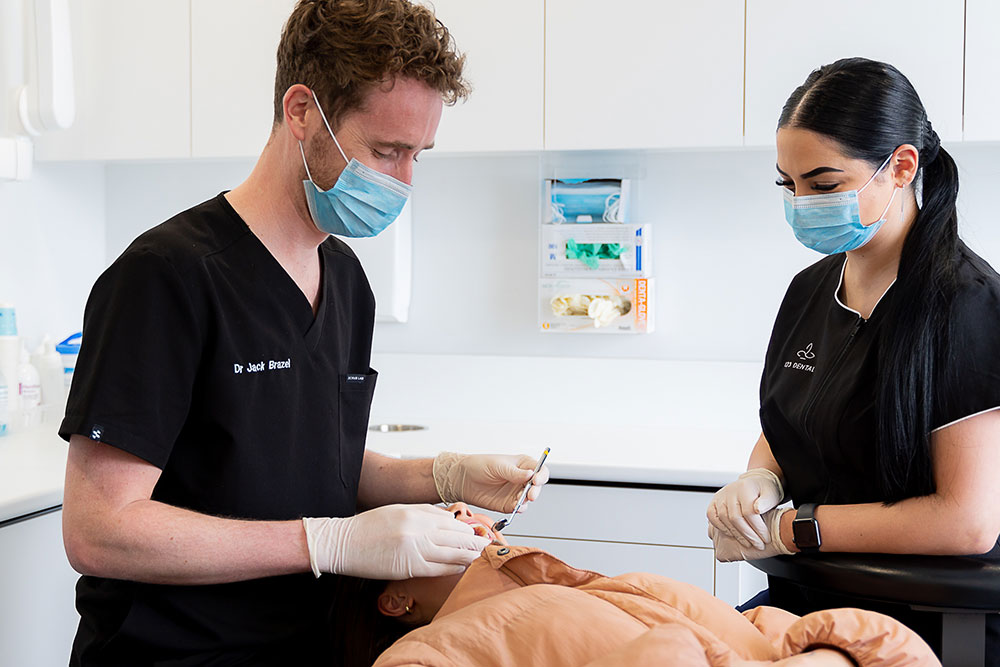
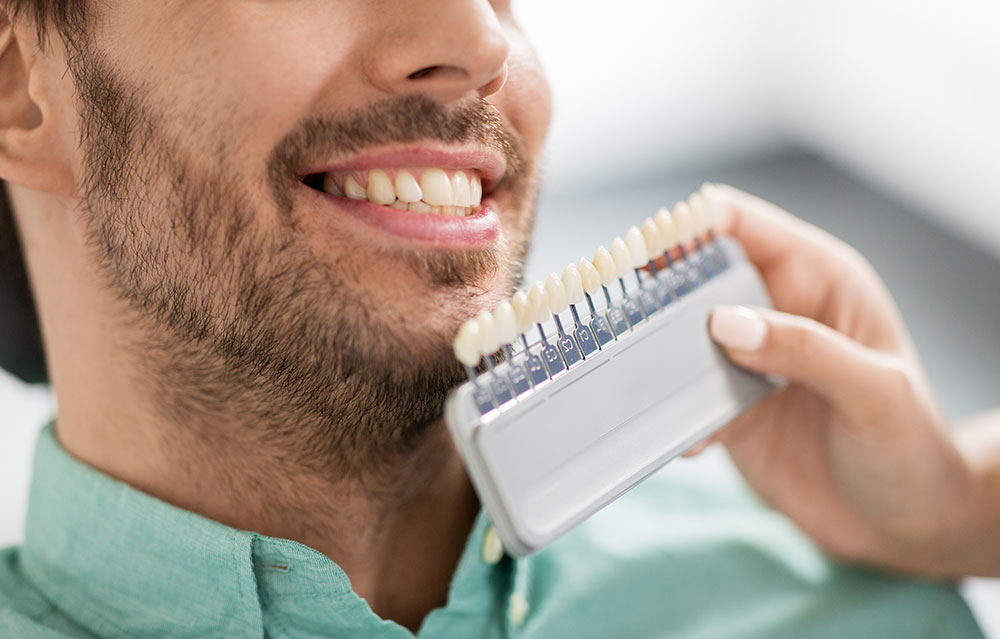
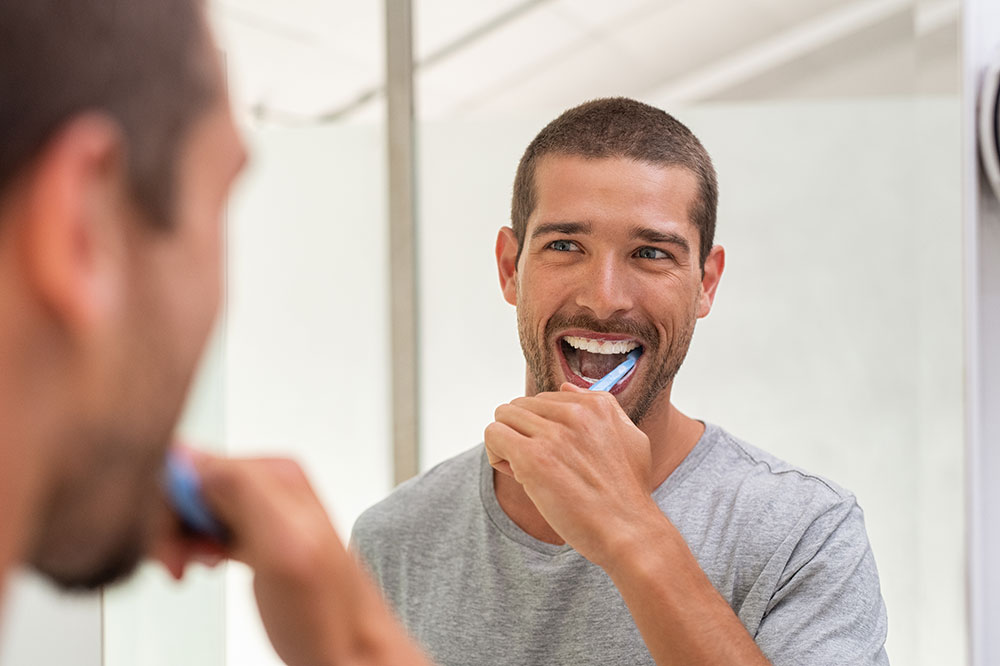
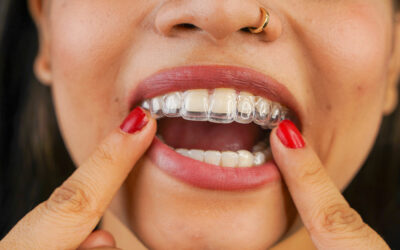
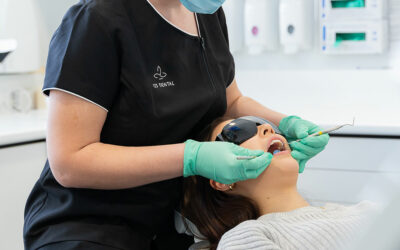
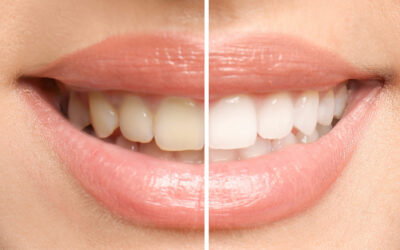
 Hi, you’re chatting with Chloe. If you could please fill out all your details below, I will be in contact with you shortly.
Hi, you’re chatting with Chloe. If you could please fill out all your details below, I will be in contact with you shortly.